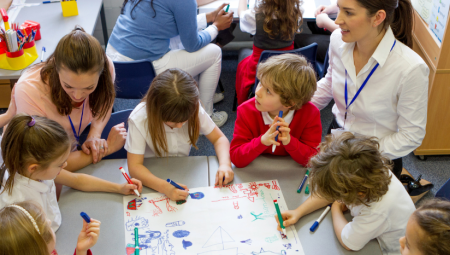This is a National Institute for Health Research (NIHR) Research for Patient Benefit (RfPB) project, focused on improving the measurement and valuation of patient-centred outcomes in cystic fibrosis.
Summary
Cystic fibrosis (CF) is a genetic condition that affects more than 10,000 people in the UK. People with cystic fibrosis accumulate thick, sticky mucus in their lungs, gut and other organs. They need to follow a time-consuming treatment routine every day to maintain their health. For example, most adults with cystic fibrosis dedicate between one and four hours every day to their treatments. This treatment burden can impact everyday life significantly for people with cystic fibrosis and their families, interfering with their work, school, university or home life. It often makes routine activities more difficult and limits social activities. In addition to their usual treatments, a lot of extra treatment – such as antibiotic injections, hospital visits and stays in hospital – is necessary when they are unwell. Feedback from the cystic fibrosis community has indicated that reducing the treatment burden is considered to be their top research priority.
Health-related quality-of-life and treatment burden are particularly important to patients and caregivers but are poorly considered in assessments of new treatments. This research aims to address this issue and ensure a more accurate valuation of patient-centred outcomes within the decision-making process for access to new treatments and clinical practice. In the longer term, this research will bring a more precise understanding of what it means to say that a cystic fibrosis treatment 'works'.
Project aims
This research was designed to improve our ability to incorporate patient-centred outcomes (specifically health-related quality of life (HRQoL) and treatment burden), systematically in economic evaluations and funding decisions. There were three specific objectives:
- To investigate the relative importance of different treatment outcomes for people with cystic fibrosis.
- To measure the HRQoL impact associated with reduced daily treatment occasions.
- To compare two validated HRQoL measures to determine which measures the best capture the aspects of quality-of-life which are important to people with cystic fibrosis.
Project activity
The project started in October 2019, with fieldwork conducted between July 2020 and March 2021. People with cystic fibrosis were involved in all stages of the project, from grant development through to survey instrument design and interpretation of results. People with cystic fibrosis attending the adult cystic fibrosis clinic at the Royal Brompton hospital in London were invited to participate in the research. A series of two web-based surveys and an online interview were conducted with participants.
What we found and what this means
Outputs will encourage the NHS to deliver the interventions that are most valued by cystic fibrosis patients. Patients will benefit because a better understanding and valuation of quality-of-life and treatment burden will enable better-informed decisions around the funding of interventions. Decision-makers will benefit from a more rigorous evidence base on which to make funding decisions. Society more broadly will benefit from increased health system efficiency (that is, more of the health outcomes most important to patients will be provided for the same cost).
In the longer term, this research will support patient access to cystic fibrosis treatments and help ensure the sustainability of our NHS. Moreover, the focus on outcomes that are important for patients will be publicised and promoted to clinicians, leading to an anticipated uptake of their routine measurement in cystic fibrosis clinical care. This project has the potential to directly and rapidly benefit patients through promoting a focus on patient-reported outcomes in clinical practice.
The presentations of the research to the European Cystic Fibrosis Society conference in June 2021, and to the North American Cystic Fibrosis Conference in October 2021 were received enthusiastically.
Fieldwork was completed in March 2021. Analysis has been finalised for one major component of the research and is underway for the remainder of the study. This is currently being written up and disseminating the findings.
Who was involved?
Co-Principal Investigator
- Dr Siobhan Carr (s.carr@rbht.nhs.uk), Royal Brompton and Harefield NHS Foundation Trust and Imperial College London
- Professor Jennifer Whitty, Senior Research Scientist, Evidera
Researchers and Institutions
- Health Economics Lead: Dr Rory Cameron (Rory.Cameron@uea.ac.uk), ARC East of England Health Economics and Prioritisation (HEP) theme / University of East Anglia
- Rana Altabee (r.altabee@uea.ac.uk), University of East Anglia
- Royal Brompton and Harefield NHS Foundation Trust
- University of Central Lancashire
- Imperial College London
- London School of Hygiene and Tropical Medicine
Contact us
Dr Siobhan Carr, s.carr@rbht.nhs.uk
HEP02





